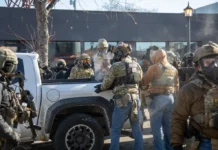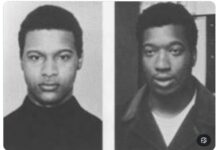The mistakes at the Texas Health Presbyterian Hospital in Dallas were due to professional and cultural lapses that put nurses and the public in danger. Based on first-hand reports from nurses who worked at the the Dallas hospital, here are the mistakes the hospital made even when it was reported to them by staff and family that the patient, Eric Duncan, may have contracted Ebola.
Worse, the nurses who brought this to the attention of the Dallas hospital are now afraid of losing their jobs for speaking the truth about management’s mistakes. Unfortunately, this is all too common in hospitals where nurses are told to be silent about mistakes or risk professional retaliation.
It will also be interesting to see what executives and managers at the hospital lose their jobs over these serious mistakes now that they cannot blame the nurses.
Here are the specific mistakes made at Texas Health Presbyterian Hospital in Dallas as cited in this document posted on the National Nurses United web site:
“When Thomas Eric Duncan first came into the hospital, he arrived with an elevated temperature, but was sent home.
“On his return visit to the hospital, he was brought in by ambulance under the suspicion from him and family members that he may have Ebola.
“Mr. Duncan was left for several hours, not in isolation, in an area where other patients were present.
“No one knew what the protocols were or were able to verify what kind of personal protective equipment should be worn and there was no training.
“Subsequently a nurse supervisor arrived and demanded that he be moved to an isolation unit– yet faced resistance from other hospital authorities.
“Lab specimens from Mr. Duncan were sent through the hospital tube system without being specially sealed and hand delivered. The result is that the entire tube system by which all lab specimens are sent was potentially contaminated.
“There was no advance preparedness on what to do with the patient, there was no protocol, there was no system. The nurses were asked to call the Infectious Disease Department. The Infectious Disease Department did not have clear policies to provide either.
“Initial nurses who interacted with Mr. Duncan nurses wore a non-impermeable gown front and back, three pairs of gloves, with no taping around wrists, surgical masks, with the option of N-95s, and face shields. Some supervisors said that even the N-95 masks were not necessary.
“The suits they were given still exposed their necks, the part closest to their face and mouth. They had suits with booties and hoods, three pairs of gloves, no tape.
“For their necks, nurses had to use medical tape, that is not impermeable and has permeable seams, to wrap around their necks in order to protect themselves, and had to put on the tape and take it off on their own.
“Nurses had to interact with Mr. Duncan with whatever protective equipment was available, at a time when he had copious amounts of diarrhea and vomiting which produces a lot of contagious fluids.
“Hospital officials allowed nurses who had interacted with Mr. Duncan to then continue normal patient care duties, taking care of other patients, even though they had not had the proper personal protective equipment while caring for Mr. Duncan.
“Patients who may have been exposed were one day kept in strict isolation units. On the next day were ordered to be transferred out of strict isolation into areas where there were other patients, even those with low-grade fevers who could potentially be contagious.
“Were protocols breached? The nurses say there were no protocols.
“Some hospital personnel were coming in and out of those isolation areas in the Emergency Department without having worn the proper protective equipment.
“CDC officials who are in the hospital and Infectious Disease personnel have not kept hallways clean; they were going back and forth between the Isolation Pod and back into the hallways that were not properly cleaned, even after CDC, infectious control personnel, and doctors who exited into those hallways after being in the isolation pods.
NO ADVANCE PREPARATION
“Advance preparation that had been done by the hospital primarily consisted of emailing us about one optional lecture/seminar on Ebola. There was no mandate for nurses to attend trainings, or what nurses had to do in the event of the arrival of a patient with Ebola-like symptoms.
“This is a very large hospital. To be effective, any classes would have to offered repeatedly, covering all times when nurses work; instead this was treated like the hundreds of other seminars that are routinely offered to staff.
“There was no advance hands-on training on the use of personal protective equipment for Ebola. No training on what symptoms to look for. No training on what questions to ask.
“Even when some training did occur, after Mr. Duncan had tested positive for Ebola, they were limited, and they did not include having every nurse in the training practicing the proper way to don and doff, put on and take off, the appropriate personal protective equipment to assure that they would not be infected or spread an infection to anyone else.
“Guidelines have now been changed, but it is not clear what version Nina Pham had available.










